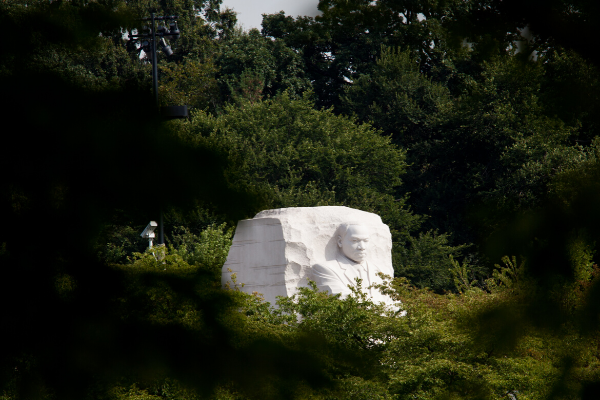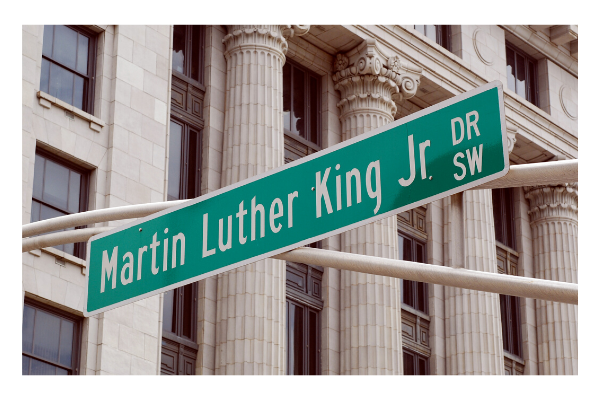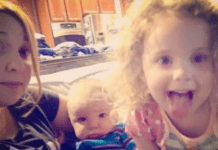Distinguished writer Ta-Nehisi Coates poignantly points out the inherent problems with dehumanizing people. And while he was specifically talking about the danger of verbally removing the humanity of enslaved and disadvantaged people, I think we often do the same thing to some degree with our heroes. We put them on pedestals and begin to believe that they are “above” humanity.
But I would argue that taking away a hero’s humanity damages his/her legacy.
Martin Luther King, Jr. is no exception. He was a lot of great things. He was an inspiration. He was a hero. He was a Nobel Prize winner. There are streets and memorials worldwide in his honor. And–he was a man.
He was a man.
But remembering that Dr. Martin Luther King, Jr. was a man is not an attempt to diminish his incredible accomplishments, his powerful orations, his sacrifices, or his love. No. I think it is necessary for us to remember his humanity to serve as a reminder that we, as fellow humans, are not exempt from the responsibility to stand up and speak out. I think it is crucial to see his humanity and recognize that we (even without multiple advanced degrees and incredibly developed speaking talents) have the capacity within ourselves to stand up and speak out, too, even if on a smaller scale.
Martin Luther King, Jr. had a mother.
As a mother, I find it intriguing to learn about other mothers. Mothers of heroes are fascinating. Did you know that Dr. King’s mother–Alberta Williams King–was his first influence on anti-violence? Did you know that she was the daughter of one of the few educated women of her generation? Dr. King’s sister, Christine King Farris, writes of their grandmother in her book Through It All: Reflections on My Life, My Family, and My Faith. She explains “Many women of her day worked in the home. They were expected to tend to their families, raise the children, cook, clean, sew, and make few waves. My grandmother was a bold exception to this formula. She had her own unique trajectory, one that was created and not dictated.”
King’s grandmother insisted on pursuing advanced education and expected similar standards of her children. “Her matriculation set an example of achievement and high standards for all the women of the King family who followed. In her own special, quiet way, she demonstrated to the community, and most important, to us, the realm of possibility and the capacity to dream.” This woman shaped the lives of her children and subsequently her grandchildren.
And so can we.
I can’t help but wonder what future heroes we are raising right now. What examples are we setting? What standards are we raising?
King’s sister, Christine, writes, “It’s no secret that one of best things parents can do for their children is to set good examples in their daily lives. I’ve always felt that this can best be achieved when the parents actually illustrate the lessons they want their children to grasp through the way they go about leading their lives, in things both great and small…”
We will not all set the exact same examples for our children (because we are not all the same), but we can set an example all our own. We can inspire and teach and love our children to help them reach their potential.
And did you know that only six years after her son’s assassination, Alberta Williams King was also shot? In a church. Right after she finished playing The Lord’s Prayer on the organ. She died at the hands of an angry man who wanted to kill her husband, but settled for her instead.
So this year, as we recognize the changes initiated and orchestrated by Dr. Martin Luther King, Jr., let’s take a moment to acknowledge the contributions of his family: his mother, his grandmothers, his father, his grandfathers, his brother, his sister, his wife, his children.
Being a mom is tough. Motherhood is even tough for the mother of a hero. And thankless. It’s listening to your beloved child even when he comes to you and says, “There’s a chance, Mother, that someone is going to try to kill me, and it could happen without any warning at all”. It’s flying to Norway to see him accept the Nobel Peace Prize. It’s attending his funeral and mustering the strength to get out of bed and face another day. Our world is a better place because of Dr. King and, in turn, because of his mother. And because of the examples they set for all of us, we, too, can–and must– be better humans.
Disclaimer: We are a participant in the Amazon Services LLC Associates and other Affiliate Programs designed to provide a means for us to earn fees by linking to Amazon.com, Target.com, Nordstrom, ABC Mouse, and other affiliate sites.

















